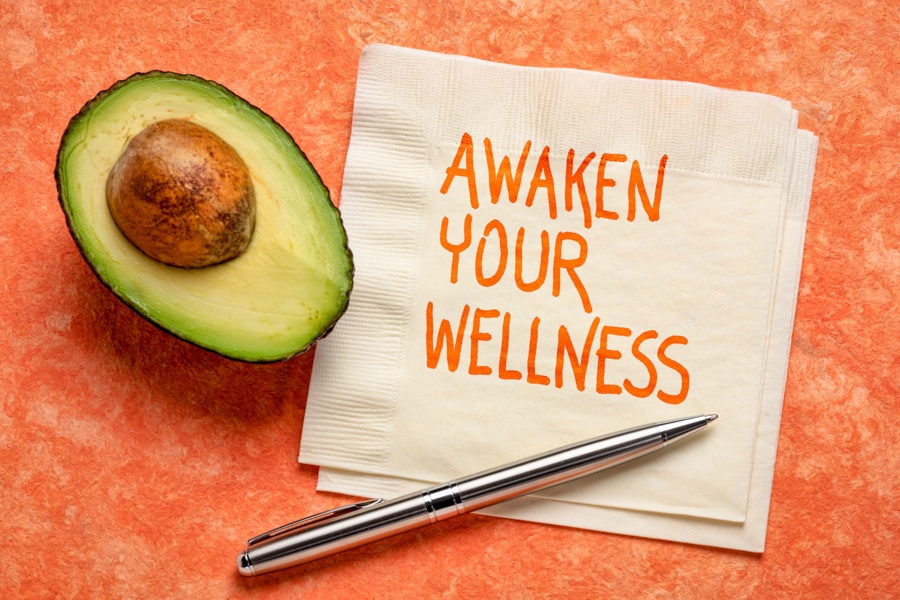August is recognized as National Wellness Month, focusing on self-care, managing stress, and promoting healthy routines. Research indicates that consistent self-care practices can lead to significant health benefits. These could include increased productivity, improved sleeping patterns, and a more balanced mindset. It is becoming increasingly important for individuals to enhance wellness routines and make health a priority.
What is National Wellness Month?
Jump to Section
National Wellness Month, celebrated every August; is an initiative that focuses on self-care, managing stress, and promoting healthy habits. Additionally, it is a time dedicated to understanding the importance of overall well-being, physical and mental health to emotional and spiritual wellness.
This month encourages individuals to take proactive steps towards enhancing their health, such as improving their diet, increasing physical activity, and fostering a positive mindset. The ultimate goal of National Wellness Month is to help people create wholesome habits that last beyond the month of August, contributing to sustained wellness throughout their lives.
A Brief History of Wellness Month
National Wellness Month, observed every August, was established with the primary objective of inspiring people to focus on self-care, promoting healthy routines, and managing stress. Created by Lisa Michaelis, CEO of Live Love Spa in 2018, the initiative encourages individuals to incorporate regular self-care practices into their daily lives. This process has helped many individuals understand its significant impact on overall health and well-being. The month-long observance is recognized by health professionals and wellness enthusiasts nationwide. It is done in an effort to help people take control of their health and happiness, and lead more balanced lives.
What is Wellness?
Wellness is a holistic approach to health that combines physical, mental, and spiritual well-being. It’s about more than just being free from illness; it’s a dynamic process of change and growth. A state of wellness is achieved by maintaining a balanced and healthy diet, regular exercise, stress management, and a positive mental attitude. Spirituality, interpersonal relationships, and environmental influences are also considered part of this complex mix. Wellness encourages individuals to make conscious, self-directed, and evolving choices toward a healthy and fulfilling life.
At its core, wellness can be seen as a way of life that encourages individuals to take responsibility for their own health decisions and actions. In addition to setting physical goals, like eating right and exercising regularly, it emphasizes mental well-being. This happens by focusing on positive thinking, developing healthy relationships, and finding purpose in life.
Why is Wellness Important?

Wellness is of paramount importance as it affects all aspects of one’s life, from physical health to mental well-being. It is not just about disease prevention or longevity but encompasses a broader spectrum of healthy living. Successful wellness strategies improve quality of life, enhance personal satisfaction, and promote positive social relationships. A holistic approach to wellness includes a balanced diet, regular physical activity, stress management, and emotional well-being. Thus, the importance of wellness cannot be overstated; it is the foundation for a fulfilling and productive life.
Can Actively Thinking About Wellness Improve Your Mental Health?
Actively thinking about wellness can significantly improve your overall mental health. When you consciously prioritize wellness, you are more likely to engage in activities that promote mental well-being, such as regular exercise, a balanced diet, adequate sleep, and mindfulness practices. These activities can help manage stress, reduce anxiety, and enhance mood. Moreover, active awareness of your wellness can encourage a positive mindset and foster resilience, both of which are critical for mental health. Therefore, integrating wellness into your daily thought process can be an effective strategy for nurturing better mental health.
Making small changes can help you become more mindful of your wellness and start implementing positive habits. Start by taking a few moments each day to assess how you are feeling physically, mentally, and emotionally. Notice if any areas need special attention or if there’s an underlying cause of stress that needs addressing. Next, focus on adding healthy activities into your daily routine like taking a walk outdoors, cooking nutritious meals, or engaging in an exercise class. Finally, find ways to relax, practice self-care and take some time for yourself with activities such as reading a book, engaging in meditation, or listening to relaxing music.
How Does Wellness Impact Mental Health Disorders?

Wellness plays a pivotal role in managing mental health disorders. It encourages the adoption of healthy habits such as regular physical exercise, balanced nutrition, and adequate sleep. These all have been shown to alleviate symptoms of mental health conditions like depression and anxiety. Additionally, wellness promotes mindfulness and stress management techniques that aid in mitigating mental health crises. It underlines the importance of social interactions, which provide support and validation, further contributing to an improved mental health landscape.
What are Some National Wellness Month Activities?

August, otherwise known as National Wellness Month, presents an excellent opportunity for individuals to focus on self-care, stress management, and developing healthy routines. Some activities to participate in during this month include the following:
- Yoga and Meditation: These activities help to relieve stress and increase body flexibility. They also improve mental health by fostering mindfulness and clarity of thought.
- Healthy Eating: Participate in cooking classes or webinars focused on creating nutritious meals. This not only builds culinary skills but also encourages a balanced diet.
- Physical Exercise: Engage in regular physical exercises like walking, running, or cycling. This boosts cardiovascular health and enhances physical strength.
- Reading: Reading is a powerful form of self-care. It stimulates the mind, expands knowledge, and serves as a healthy escape from daily stressors.
- Volunteering: Contributing to community service can be deeply fulfilling and a wonderful way to build emotional well-being.
What are Five Habits for Self-Care to Observe this Month?
National Wellness Month is a time to focus on self-care and the habits that contribute to a healthier lifestyle. Wellness, overall, is a personal journey that involves finding what strategies work best for you. Five ways to improve your overall wellness include the following:
- Regular Exercise: Engaging in physical activity helps maintain a healthy weight, reduces the risk of chronic diseases, and improves mental health.
- Balanced Diet: Consuming a variety of foods packed with essential nutrients supports overall health and helps prevent diet-related illnesses.
- Quality Sleep: Ensuring 7-9 hours of sleep each night is crucial for the body’s repair processes and cognitive functions.
- Hydration: Drinking at least eight 8-ounce glasses of water daily is essential for the proper functioning of the body.
- Mindfulness: Practices like meditation or yoga can help reduce stress and improve mental health.
Why are Self-Care Habits Important?
Self-care habits are essential for maintaining a healthy relationship with oneself and can contribute to a positive mood and overall well-being. They promote physical health, improve mental strength, and can help manage stress. Regular self-care can lead to increased self-esteem and self-confidence. A balanced diet, regular exercise, and adequate sleep are some examples of self-care habits that have a direct impact on our physical health.
Moreover, activities like meditation and journaling can support emotional and mental health. This can happen by providing a platform to express feelings and reflect on our thoughts and experiences. Self-care is not a luxury, but a necessity for overall health and well-being.
Does Participating in Self-Care Really Make a Difference?
Participating in self-care activities can make a significant difference in our lives. Regular self-care helps reduce stress, build resilience, and prevent burnout by ensuring that we take the time to replenish and nurture our physical, emotional, and mental well-being. It ranges from maintaining a healthy diet and exercise routine to indulging in activities that we love and help us relax. By prioritizing self-care, we ensure that we are at our best not only for ourselves but also for those around us.
Holistic Treatment Programs Can Improve Wellness at Free by the Sea
At Free by the Sea, we firmly believe in the transformative power of holistic treatment programs to improve overall wellness. Our programs encompass a range of therapies designed to restore balance and promote health in every aspect of an individual’s life. From physical fitness and nutritious meals to mindfulness exercises and therapeutic counseling, we strive to nourish the body, mind, and spirit. By addressing the person as a whole rather than focusing on a single aspect of health, we can help individuals overcome challenges and foster lasting wellness.
Holistic treatment addresses the individual as a whole entity, rather than merely addressing isolated symptoms. It recognizes that the mind, body, and spirit are interconnected. For instance, chronic physical ailments can lead to mental health issues like depression or anxiety. On the flip side of the same coin, mental health problems can manifest as physical symptoms. Holistic treatment can restore balance and promote total wellness.
Free by the Sea Acknowledges National Wellness Month and Can Assist Your Wellness During Recovery
Wellness is imperative to the quality of life. If you or a loved one are interested in what we have to offer, we’d love to speak with you. You can contact us here.

Dr. Richard Crabbe joined our team in 2019 as our psychiatrist and medical director. He attended the University of Ghana Medical School where he became a Medical Doctor in 1977. From 1978 through 1984, he was a medical officer in the Ghana Navy and provided a variety of services from general medicine to surgeries. He received his Certificate in General Psychology from the American Board of Psychology and Neurology in 2002.

 August 7th, 2023
August 7th, 2023










